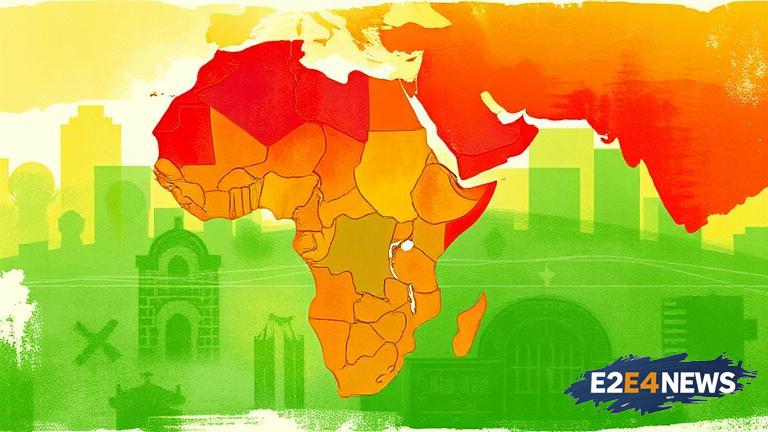Africa, the second-largest continent in the world, is home to 55 countries, each with its unique culture, history, and economic landscape. The continent has been experiencing significant economic growth over the past few decades, with many countries making notable progress in development and poverty reduction. One of the key drivers of Africa’s economic growth is the increasing investment in infrastructure development, including roads, railways, and ports. This has improved connectivity and facilitated trade within the continent and with other regions. Additionally, the growth of the service sector, particularly in areas such as finance, telecommunications, and tourism, has contributed significantly to the continent’s economic expansion. The African Continental Free Trade Area (AfCFTA) agreement, which came into effect in 2021, has also played a crucial role in promoting trade and economic integration among African countries. The agreement aims to create a single market for goods and services, with the goal of increasing intra-African trade and promoting economic development. Furthermore, many African countries have made significant progress in improving their business environments, with reforms aimed at simplifying regulatory procedures, reducing bureaucracy, and increasing transparency. This has made it easier for businesses to operate and invest in the continent. The growth of the middle class in Africa has also been a significant factor in driving economic growth, as it has led to increased consumer spending and demand for goods and services. Moreover, the continent is rich in natural resources, including oil, gas, minerals, and agricultural products, which has attracted significant investment from foreign companies. However, despite the progress made, Africa still faces significant challenges, including poverty, inequality, and unemployment. The continent is also vulnerable to external shocks, such as changes in global commodity prices and climate change. To address these challenges, many African countries have implemented policies aimed at promoting economic diversification, improving governance, and increasing investment in human capital. The role of technology in driving economic growth in Africa has also been significant, with the growth of e-commerce, mobile payments, and other digital services. Moreover, the continent has seen a significant increase in innovation and entrepreneurship, with many start-ups and small businesses emerging in areas such as fintech, healthtech, and agritech. The growth of the African diaspora has also played a crucial role in promoting economic development, as many Africans living abroad have invested in businesses and projects back home. In addition, the continent has received significant support from international organizations, such as the African Development Bank, the World Bank, and the International Monetary Fund, which have provided financing and technical assistance to support economic development. However, despite the progress made, there is still a need for more investment in areas such as education, healthcare, and infrastructure to support sustainable economic growth. The private sector also has a critical role to play in driving economic growth in Africa, particularly in areas such as manufacturing, agriculture, and services. Moreover, the continent needs to improve its trade relationships with other regions, particularly in areas such as trade facilitation, customs procedures, and standards. The growth of regional economic communities, such as the East African Community and the Southern African Development Community, has also been significant in promoting economic integration and cooperation among member states. In conclusion, Africa’s economic landscape is complex and diverse, with many countries making significant progress in development and growth. However, the continent still faces significant challenges, and there is a need for more investment, innovation, and cooperation to support sustainable economic growth and development.
